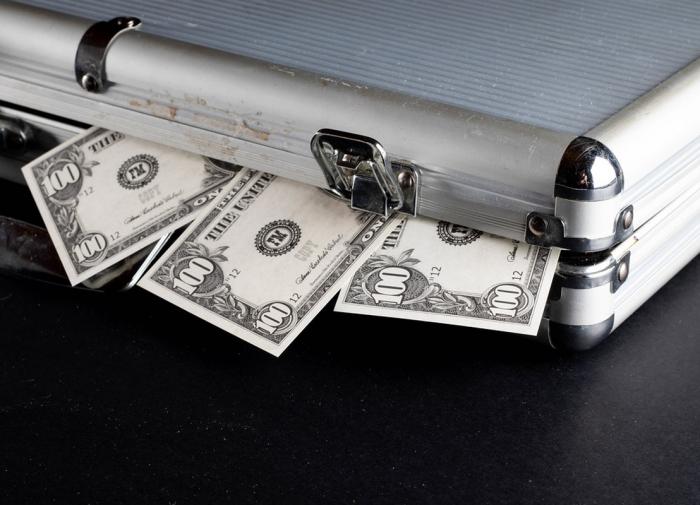Ukraine's wishful thinking: EU prepares decision to confiscate Russian assets
Ukrainians official said that the European Union would unveil a joint decision for the confiscation of frozen Russian assets by February 19.

Borrell's personal opinion
Ukrainian sources reported that the European Union was ready to make a joint decision on the issue of confiscation of frozen Russian assets.
"Regarding the blocked Russian assets. We can say that we have a political agreement to complete this work based on the proposals that we presented in December, with an emphasis on revenues. At the moment we are talking about revenues, interest income, and I am convinced that this will be completed in the near future,” EU chief diplomat Josep Borrell said.
Discussions will continue at ambassadorial level, "but I see that an agreement is coming,” a DW correspondent said. The decision must be made before February 19, when EU foreign ministers meet again in Brussels.
Obviously, these are only Borrell's expectations, rather than a resolved issue, as Ukraine would like it to be.
What EU may confiscate
The issue of confiscation of Russia's frozen assets has been on the agenda since the beginning of the special operation in Ukraine. According to Western sources, most of them are money assets, as well as government bonds of Belgium, France, Germany, Great Britain, and Austria.
Judging from Borrell's statements, the EU discusses excess profit tax on interest income from financial institutions that keep Russian billions in custody. It is this "tax,” deposited to special accounts, that they want to confiscate.
Politically, this confiscation will be carried out as an "advance payment for reparations”, which the Kremlin, as the EU believes, will have to pay to Ukraine. However, it is the loser who pays reparations.
The European Central Bank announced that such a confiscation could still destabilise the EU financial system. International investors may indeed leave Europe should the EU gain access to profits from custodians.
Yet, this is just a secondary argument now for the EU that lives under USA's pressure.
Confiscated money is not enough for Ukraine
Belgian Prime Minister Alexander De Croo (Belgium is home to EU's Euroclear depositary) said in October that €1.7 billion of "tax revenue" was already availableю The money would be used to buy military equipment, humanitarian aid and rebuild the war-torn country, Croo said. Euroclear reported a special income of €3 billion from January to September 2023 and paid around €800 million in taxes to the Belgian government, Handelsblatt publication said.
Even if the EU transfers 800 million or 1.7 billion euros to Ukraine, the money will not solve the issue of its sufficient funding. The price of the issue is $40 billion a year — this is Ukraine's budget deficit.
Russia will sue and respond in a mirror way
The international principle of state immunity runs that countries can not handle assets of other sovereign states. Therefore, Russia will go to court. Moscow may also take countermeasures by confiscating Western assets and severing diplomatic relations with "unfriendly” countries.
The volume of direct investment made by the European Union, G7, Australia and Switzerland in the Russian economy at the end of 2022 amounted to $288 billion, a study based on national statistical data from Western countries said, RIA Novosti reports.
In March last year, about 6.5 billion dollars were transferred from type "C” accounts of the National Settlement Depository to the Deposit Insurance Agency (Russia opens such accounts for unfriendly residents). These funds may be confiscated in response to European measures.
Credit rating of EU countries will tumble down
Russia will also state that the countries whose government bonds Russia purchased will be considered insolvent if Western governments refuse to pay interest on them to the Russian Federation.
The precedent was set in June 2022, when Western sanctions prevented Moscow from making foreign currency payments to Russian bondholders. The United States and Moody's then assigned a default rating to Russia.
Western experts believe that Central Banks of other countries have no investment directions other than Europe, the USA or Japan. Therefore, one does not need to fear their reputation. Yet, any country may find itself in a state of war with the West at any moment. To crown it all, China has long conquered credit markets of the whole world.
The West wants to 'drain' Ukraine
It appears that Western governments want to confiscate frozen Russian assets to relieve themselves of the need to continue their never-ending and exhausting assistance to Ukraine. They also hope to relieve themselves of political obligations to support the Kyiv regime.
The exact amount of frozen Russian assets, their location and composition are unknown. The laws of many countries prohibit the publication of such information. According to The Financial Times, the United States is to obtain a clarification from G7 work groups about what assets they are exactly — gold, foreign currency or securities.
Subscribe to Pravda.Ru Telegram channel, Facebook, RSS!


